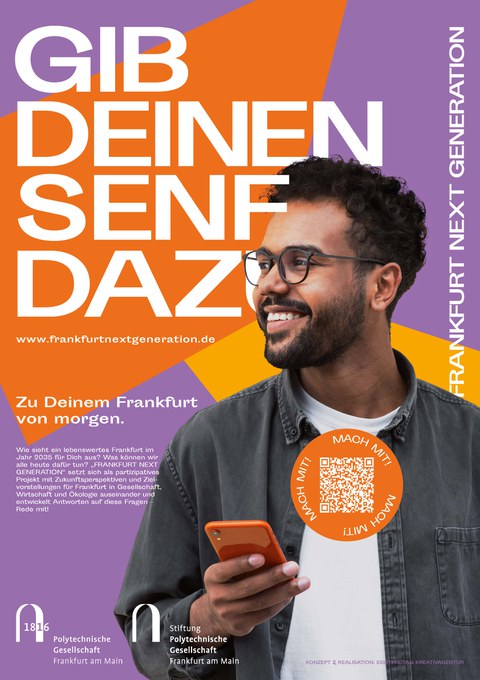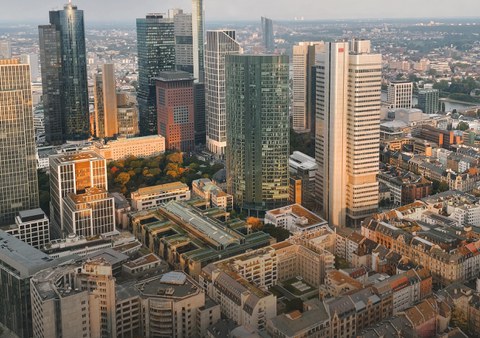Feb 15, 2024
"Frankfurt Next Generation - Shaping the future": WISSENSARCHITEKTUR provides digital citizen participation forum
From 15 February, all Frankfurters will be able to contribute their ideas and suggestions for the design of the future Frankfurt for a month via a digital citizen participation forum. The participation format is a joint project of HafenCity University Hamburg and the WISSENSARCHITEKTUR Laboratory of Knowledge Architecture at TU Dresden under the direction of Prof Dr Jörg Rainer Noennig.
What should Frankfurt 2035+ look like?

The media campaign (analogous: "Add your two cents") draws the attention of Frankfurters to the Citizens' Participation Forum.
How can the transformation to a sustainable city that opens up a good future for future generations succeed? What do we need to do today to leave our children and grandchildren a city worth living in? How can Frankfurt become part of the necessary system transformation? These are the questions addressed by "Frankfurt Next Generation" - an initiative of the Polytechnische Gesellschaft in cooperation with the Stiftung Polytechnische Gesellschaft.
The aim is to develop a vision for the future of Frankfurt that uses concrete examples to show people what their city could look like in 2035+. It also aims to motivate citizens to take responsibility for shaping their city themselves.
Following numerous panel discussions and expert interviews in recent months, the large-scale project is now entering its next phase. In the citizen participation forum (available at www.frankfurtnextgeneration.de), interested parties can describe their own ideas, answer questions about their personal wishes and expectations and evaluate existing visions and ideas until 22 March 2024 .
Prof Noennig: "A project of this complexity breaks new ground for city transformation"
Prof. Dr.-Ing. Jörg Rainer Noennig emphasises the innovative character of the project. "Frankfurt Next Generation" goes beyond the participatory approaches tried and tested in urban planning processes: "This time it's not just about a single urban planning project, but about the future vision of an entire city, which should do justice to its social, economic and ecological complexity," explains Noennig. He hopes that the project could set an example for transformation processes in other cities. "We are definitely breaking new ground with this project, which combines digital and analogue participation formats."
For this reason, the project participants have decided to conduct accompanying scientific research for the project, which will be carried out by a team from the Chair of Digital City Science at HafenCity University and the WISSENSARCHITEKTUR - Laboratory of Knowledge Architecture at TU Dresden.
Public "Future Festival" in September
The scientific team will collate all datas of participation processes and present a complex "picture of the future". Subsequent workshops with decision-makers will develop proposals for practical implementation and specific projects. On 11 and 12 September 2024, the initiative will culminate in the Future Festival at Goethe University Frankfurt, where the results will be presented to the public and innovative minds will come together to discuss the latest developments and pioneering ideas. The event offers space for presentations, discussions, workshops and networking.
The Polytechnische Gesellschaft project in collaboration with the Polytechnische Gesellschaft Foundation is supported by the City of Frankfurt's Environment Department and other partners, including Goethe University, the Senckenberg Gesellschaft, the Werte-Stiftung, Deutsche Familienversicherung and the Kuratorium Kulturelles Frankfurt.
